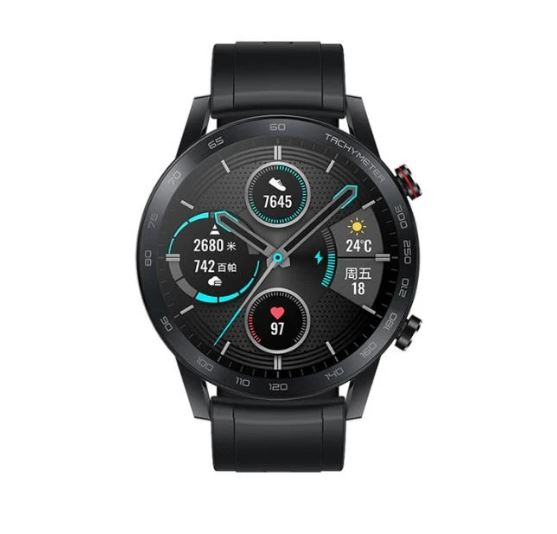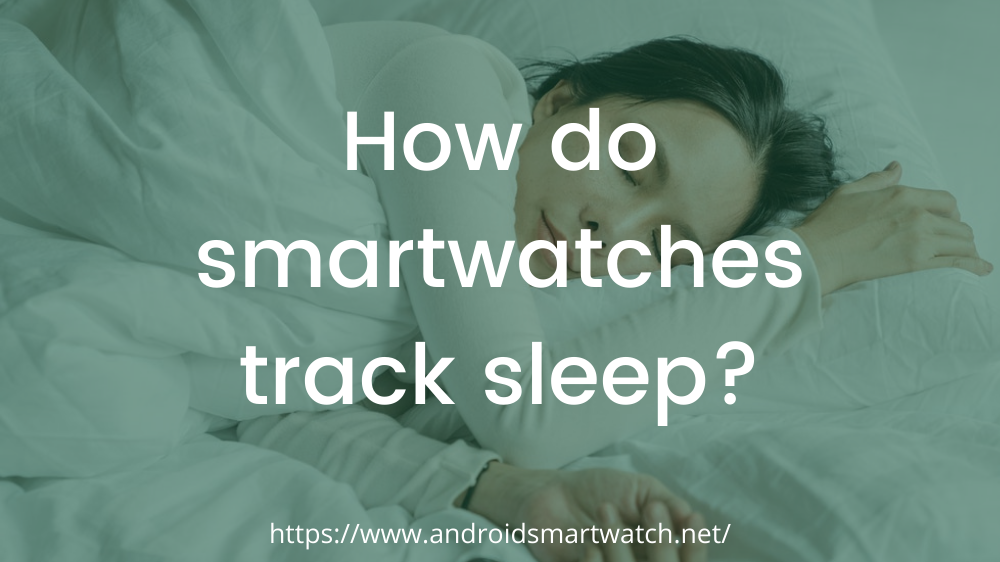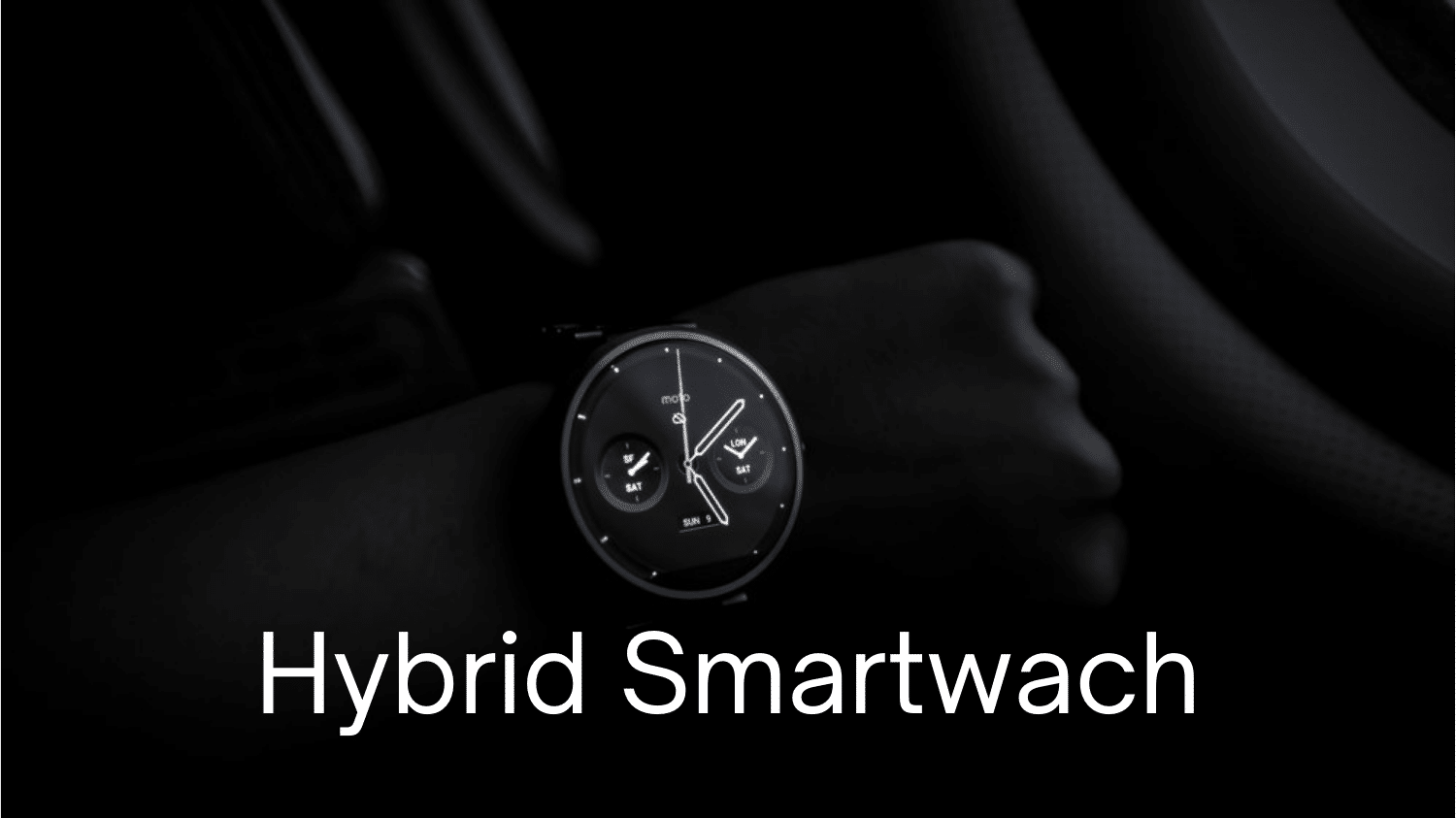Last Updated on March 10, 2024 by Oliver
Introduction
Sleep used to escape me like a playful ghost. I used to toss and turn, and I’d find myself gazing up at the ceiling, night after night. But then, my trustworthy smartwatch pace in and changed my nights. It became my sleep fellow, my protector of rest.
It’s unbelievable how it monitors my slumber, guiding me to nights of calm tranquility. Ever wondered how it works its magic? Join me on this journey as I unravel the secrets of how smartwatches track sleep, bringing you closer to the dream of peaceful nights.
Why sleep is important
Brain function:
Sleep is critical for health and play a crucial role in life, strengthening, productiveness, and public presentation. Sleep is not simply a wealth, it’s a fundamental requirement for overall health and well-being. Quality sleep also help in reducing the overall risk of chronic diseases and improve your overall health.
Negative impact:
Not getting enough sleep not only drains your mental ability but also damages your physical health. Science has proved a number of health problems, from weight gain to weekend immune system. But oversleeping also been linked to a number of medical problems, including diabetes, heart disease, and increased risk of death.
Mood stabilizer:
Sleep reduce stress and enhance emotional wellbeing. Because lack of sleep can lead to mood swings, irritability and even can lead to depression which are the main cause of stomach issues. Study has proved who are deprived of sleep often lead to anger issues and decrease in positive moods.
What do sleep tracker in smartwatch measure
Just think having a small sleep detective right on your wrist. A sleep tracker, like a trusted companion, can uncover the secrets of your night’s rest. With its open-eyed eye, it measures your sleep duration, quality, and stages. It’s like having a sleep expert in your pocket, ready to reveal your nocturnal adventures and help you awaken to better nights and brighter days.
Sleep Duration
The total time you spend sleeping during the night. By time you are tracking you are inactive. The device can record when you fall asleep and when you stir in the morning. Sleep tracker can tell you the number of times your sleep was interrupted and many things other.
Sleep Quality
An assessment of the depth and restfulness of your sleep, often scored on a scale. Letting you know when you are tossing and turning during sleep. Most sleep trackers measure sleep quantity and quality by using accelerometer, small motion detectors. This detail is then analyzed using an algorithm to estimate sleep time and quality.
Sleep Phases
Picture a smartwatch that reads your sleep stages and awakens you during a lighter sleep phase, like a gentle sunrise instead of a jarring alarm. These devices are your private sleep conductors, mastermind a smoother wake-up experience by synchronize with your body’s natural rhythms.
Sleep Trends:
These smartwatches act as your sleep journal, betraying patterns and habits affecting your sleep. Armed with these insights, you can make changes for better sleep, essentially having a sleep coach on your wrist.
How do sleep tracker actually work
Ever thought how to turn itchy nights into peaceful sleep? Meet sleep trackers, your trusty dream detectives. From stylish smartwatches to restrained under-sheet agents, they’re like secret sleep subject. They listen to your body’s cues, track your moves, and decode your snores to unveil your sleep stages. Whether chasing unidentifiable rest or exploring nocturnal adventures, they’re your ticket to serene nights and vibrant mornings.
Accelerometer
Picture accelerometer as the tireless guardians of your nightly odyssey, found not only in dedicated sleep trackers but also most smartphones. These little wonders, akin to sleep’s own secret agents, stealthily monitor your every nocturnal twitch and shuffle.
Their mission? To translate these motions into a treasure trove of insights about your sleep quality and duration. Think of them as your sleep companion’s trusty sidekick, always at the ready to decode the intricate puzzle of your slumber.
But here’s the twist: while accelerometer is ubiquitous in sleep tracker apps and smartwatches, they might not hold all the keys to the sleep kingdom. The reason? Sleep stages, those enigmatic phases of rest, often remain shrouded in mystery even to these motion-sensing marvels.
The Sleep Foundation suggests that the subtle nuances of sleep may evade detection based solely on movement. So, while accelerometer provide a solid foundation for understanding your overall sleep, the finer details of your nocturnal adventures might require a bit more sleuthing.
Environmental Factors
Suppose having a microphone, related to those found in smartphones, quietly observing your sleep environment. This audio sensor detects room sounds and shade in your body’s nocturnal activities, offering insights into your sleep quality. In tandem with integrated thermometers in advanced sleep trackers, it can uncover correlations between temperature fluctuations and sleep disruptions.
The significance of this technology extends beyond curiosity. It serves as a valuable tool for evaluating the effectiveness of treatments such as Continuous Positive Airway Pressure (CPAP) for sleep apnea.
Once armed with comprehensive sleep data, actionable steps for improvement come to light. For instance, late bedtimes may warrant setting reminders for an earlier sleep schedule, while alcohol-related sleep disturbances can be mitigated by moderating consumption closer to dinner.
The selection of the ideal sleep tracker may involve some trial and error, catering to individual preferences. If wristbands prove uncomfortable, smartphone applications placed near your bedside offer a suitable alternative. Additionally, discrete trackers that slip beneath your bedding eliminate direct skin contact.
It’s crucial to note that merely monitoring sleep doesn’t guarantee improved sleep quality. Real transformation occurs when insights inform habit adjustments. Leveraging data to optimize sleep patterns holds the key to a restful and rejuvenating slumber.”
This condensed version maintains professionalism while offering essential information on sleep tracking technology.
Heart Rate and Respiration
Think of your sleep tracker as a virtual sleep individual. It not only tracks your sleep stages, including REM, by monitoring your heart rate, but also keeps a open-eyed eye on your respiration rate—a key signal of sleep disorders like snoring and sleep apnea.
This tech marvel, found in smartwatches and fitness bands, uses green LED lights to exactly measure blood flow and heartbeats, ensuring accurate data. Equipped with this information, you can fine-tune your sleep habits for a healthier, more relaxing life.
Do smartwatches accurately track sleep?
In your mobile app, you not only get expert sleep tips but also track your sleep performance over time, making it easy to compare your progress. These apps even show your average sleep duration for months or years.
Smartwatches, while not 100% precise, offer data you can trust for better sleep. A study on six well-known brands found their measurements to be highly accurate. However, it’s worth noting that these devices may not match the accuracy of professional lab tests.
One challenge is interpreting the data correctly. While these apps provide valuable insights, they can’t replace personalized guidance when you need it. Sleep needs vary, and there’s no one-size-fits-all solution. That said, leveraging smartwatch metrics can undoubtedly enhance your sleep quality and productivity.
Do I need to wear my smartwatch while sleeping for it to track my sleep?
Is it safe to wear your smartwatch all the time? Absolutely, but remember to give your skin a breather and prevent bacteria buildup by taking it off for a few hours.
Now, why consider wearing it at night? It’s your sleep companion, helping you understand your sleep patterns, ensuring quality rest, and keeping you on top of your schedule with alerts and notifications. It’s like having a trusty sleep and productivity coach right on your wrist.
Which sleep trackers is most accurate?
Following are the most accurate sleep trackers till 2023
- Fitbit
- Garmin
- Withing
- Oura Ring
- Apple watch
- Whoop strap
- Samsung Galaxy watch
How does sleep tracking affect smartwatch battery life?
As the sun sets and the day winds down, your trusty smartwatch quietly prepares to become your bedtime companion. When it’s fully charged, your watch will eagerly signal its readiness to join you in bed for a night of insightful sleep tracking.
However, it’s important to note that this technological marvel’s ability to monitor your slumber comes at a cost: on average, sleep tracking can consume around 20% of your watch’s battery life. So, before you tuck yourself in, consider how this feature may impact the battery power you’ll have to start your day.
Final Thoughts
This article explores how smartwatches have changed the way we understand and improve our sleep. It begins by sharing the author’s personal experience of better sleep with the help of a smartwatch. The article then explains why good sleep is essential for our health and well-being.
Next, it describes what smartwatches can measure when it comes to sleep, like how long you sleep and how well you sleep. These smartwatches act like sleep detectives, helping us understand our sleep patterns.
The article also explains how these sleep trackers work. They use things like accelerometers to monitor our movements while we sleep and even environmental sensors to check our sleep surroundings. These trackers give us insights into our sleep quality.
It’s important to note that just tracking sleep isn’t enough; we need to use this information to improve our sleep habits. The article ends by answering common questions about the accuracy of sleep tracking and its impact on the smartwatch’s battery life. In simple terms, it provides a helpful guide to using smartwatches for better sleep.
(FAQ) Frequently Asked Questions
What are the benefits of using a smartwatch for sleep tracking?
Using a smartwatch for sleep tracking offers several benefits. It can help you gain visual sense into your sleep patterns, understand the quality of your sleep, and identify areas for improvement. Additionally, some smartwatches offer features like silent alarms that wake you up at the best time in your sleep cycle, possibly leading to a fresher start to your day.
Are there privacy concerns with smartwatch sleep tracking?
Yes, privacy concerns can arise with smartwatch sleep tracking. Users should be aware of how their sleep data is gathered, stored, and used by the producer or associated apps. It’s important to review privacy settings and terms of service to ensure your data is handled securely.
Can smartwatches detect sleep disorders like sleep apnea?
Some advanced smartwatches with special sensors can possibly detect sleep disorders like sleep apnea by monitoring factors like improper breathing patterns and oxygen saturation levels. However, these features may not be available on all smartwatches and should not replace a medical diagnosis. Consult a healthcare professional for a definitive rating of sleep disorders.
How can users optimize their smartwatch for accurate sleep tracking?
To optimize sleep tracking accuracy, users should wear their smartwatch secure but comfortably on their wrist, ensure it’s charged for nightlong use, and update the device firmware and associated apps regularly. Additionally, following a consistent sleep schedule can help improve the dependability of sleep tracking data.




